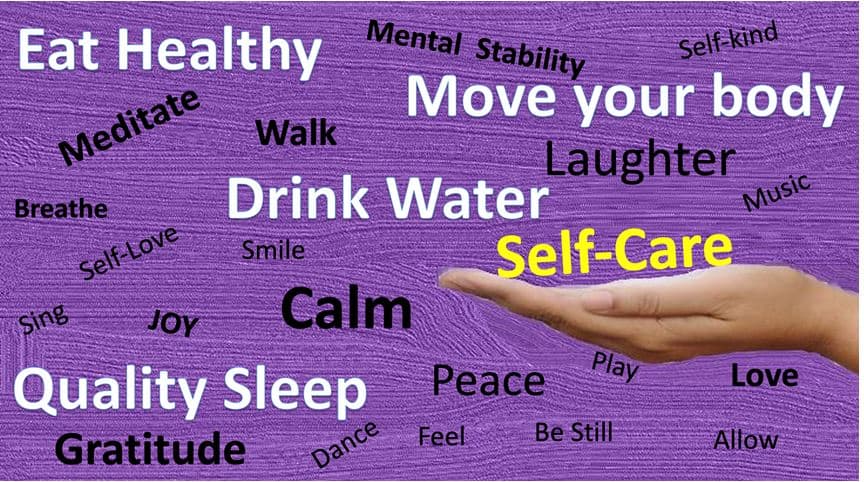In the Flow with Healing Waters

Sick-Care vs. Well-Care
Most of us grew up paying attention to our health only when we’d get sick or injured. Many consider taking care of their health after a wakeup call, once they have become ill.
Many of us did not grow up with the understanding that what we are doing impacts our well-being. The things we eat, moving our bodies, paying attention to the stress, what we drink and how much we sleep. All of these play an important role in well-care.
The difference between sick-care and well-care.
- Sick-care happens after illness has started in the body
Often there is a doctor visit to find out what has happened and why there is pain, or why we don’t feel well. The majority of the time the suggestions to regaining health and to be out of pain is to take a pill or to have surgery.
- Well-care is living a life consciously to encourage a life with less or no illness. Enjoying more joy, love and happiness and taking care of your body and mind.
Well-care is a totally different approach, well-care happens before and during the time of feeling off or in pain.
What does this really mean?
Well-care is using a holistic approach, mind, body, and spirit. Consciously taking a look inward helps to be well, not just trying to get rid of pain, sickness and feeling off.
5 things you will want to be conscious of with well-care in mind:
- De-stressing the body
- Drink plenty of water
- Eating well
- Movement
- Sleep
1) De-stressing the body
There are many different ways to calm the tension in the body, find a way that suits you. It might be physical movement, it might be meditation, it could be an activity such as fishing, golfing, needle work or cooking. Oftentimes it will be something you do and you lose track of time.
Stress/tension in the body is the biggest reason we have pain and become ill. When we manage our stress, we will have less illness, physical and emotional pain.
Seems simple enough!
Taking the time to do it, understanding and being conscious of what you are doing is self-care and well-care.
2) Drinking plenty of water
Making sure your body is hydrated is important.
According to H.H. Mitchell, Journal of Biological Chemistry 158, the adult human body is made up of 60% water, the brain and heart are composed of 73% water, and the lungs are about 83% water. The skin contains 64% water, muscles and kidneys are 79%, and even the bones are watery: 31%.
If you experience one or more of these signs of severe dehydration, consult your doctor and drink more water.
- Not peeing or having very dark yellow urine
- Very dry skin
- Feeling dizzy
- Rapid heartbeat
- Rapid breathing
- Sunken eyes
- Sleepiness
- Lack of energy
- confusion/ Irritability
- Fainting
3) Eating well
There are plenty of schools of thought on what to eat. Everyone is different, so search until you find the best diet that works for you.
Why would we want to eat a well-balanced healthy diet?
There is a saying you are what you eat, I think there is some truth in this saying.
Everyone’s body cells regenerate creating a state of health in the body.
Good food is one of the most important items to generate healthy cells, healthy cells generate healthy organs, healthy organs produce a healthy electrical flow in the body, and eating good food is a powerful way to well-care.
Good gut health is extremely important- the gut is the place we absorb nutrients in the body. When people are either constipated or experience diarrhea there is a problem in your digestion tract. If you think of the digestion tract as the sewer system of the body and we compare this to the city sewer system, if it stopped working, there is a problem in the whole city. The same is true in the body, a backed up digestive tract puts pollutants in the whole body. Keeping it working at its optimum is essential for wellness.
4) Movement
The body is made to move, blood, muscles, cells, electricity, and oxygen. It is important for the body to move. Find out what type of movement works for you. Could be walking, running, yoga, lifting weights, pilates. Movement helps move energy in the body and keeps you well.
5) Sleep It is important for optimum function of the brain, emotions and the body. On average a good amount of sleep for adults is 7-9 hours. Children need more sleep than an adult.
Psychological risks for sleep deprivation include:
- Impulsive behavior.
- Anxiety.
- Depression.
- Paranoia.
- Suicidal thoughts
Paying attention to and finding out your personal body balance in these areas will help you on your journey of well-care success.
-Stay in the Flow
Written by Denise Gunderson, AcuEnergetics® senior practitioner





